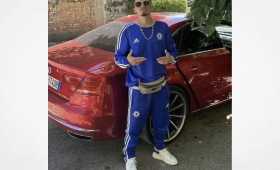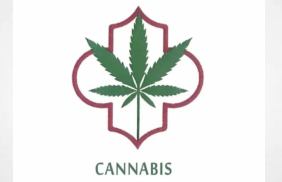Just to be very clear this case summary was written by Chat GPT
UNITED STATES v. OAKLAND CANNABIS BUYERS’ COOPERATIVE was a landmark case that dealt with the legality of medical marijuana use in the United States. The case was heard in the United States Court of Appeals for the Ninth Circuit.
In 1996, California became the first state in the US to legalize medical marijuana through the Compassionate Use Act. The Oakland Cannabis Buyers’ Cooperative (OCBC) was established in Oakland, California, to provide medical marijuana to patients with a doctor’s recommendation.
However, the federal government considered marijuana to be a Schedule I controlled substance under the Controlled Substances Act and thus illegal for any purpose, including medical use. In 1998, the United States Attorney’s Office for the Northern District of California filed a lawsuit against the OCBC for violating federal drug laws.
The case went to trial, and in 1999, the jury found the OCBC guilty of distributing marijuana in violation of federal law. The court issued an injunction against the OCBC, prohibiting it from distributing marijuana. The OCBC appealed the decision to the Ninth Circuit.
In 2001, the Ninth Circuit Court of Appeals upheld the lower court’s decision, finding that the distribution of marijuana for medical purposes violated federal drug laws. The court rejected the OCBC’s argument that it was exempt from federal prosecution under the “medical necessity” defense.
The court held that the Controlled Substances Act preempted California’s Compassionate Use Act, and that the OCBC’s activities were not protected by the First Amendment or the medical necessity defense.
The ruling in this case had significant implications for the medical marijuana industry in the US, as it established that federal law preempts state laws regarding the use and distribution of marijuana, even for medical purposes. However, it also spurred a push for legislative reform to address the conflict between state and federal laws on marijuana.
As a point of comparison this is what Cornell wrote at LII
https://www.law.cornell.edu/supct/html/00-151.ZS.html
SUPREME COURT OF THE UNITED STATES
UNITED STATES v. OAKLAND CANNABIS BUYERS’ COOPERATIVE et al.
CERTIORARI TO THE UNITED STATES COURT OF APPEALS FOR THE NINTH CIRCUIT
Respondent Oakland Cannabis Buyers’ Cooperative was organized to distribute marijuana to qualified patients for medical purposes. The United States sued to enjoin the Cooperative and its executive director, also a respondent (together, the Cooperative), under the Controlled Substances Act. The United States argued that the Cooperative’s activities violated the Act’s prohibitions on distributing, manufacturing, and possessing with the intent to distribute or manufacture a controlled substance. The District Court enjoined the Cooperative’s activities, but the Cooperative continued to distribute marijuana. The District Court found the Cooperative in contempt, rejecting its defense that any distributions were medically necessary. The court later rejected the Cooperative’s motion to modify the injunction to permit medically necessary distributions. The Cooperative appealed, and the Ninth Circuit reversed and remanded the ruling on the motion to modify the injunction. According to the Ninth Circuit, medical necessity is a legally cognizable defense likely applicable in the circumstances, the District Court mistakenly believed it had no discretion to issue an injunction more limited in scope than the Controlled Substances Act, and the District Court should have weighed the public interest and considered factors such as the serious harm in depriving patients of marijuana in deciding whether to modify the injunction.
Held:
1. There is no medical necessity exception to the Controlled Substances Act’s prohibitions on manufacturing and distributing marijuana. Pp. 5—11.
(a) Because that Act classifies marijuana as a schedule I controlled substance, it provides only one express exception to the prohibitions on manufacturing and distributing the drug: Government-approved research projects. The Cooperative’s contention that a common-law medical necessity defense should be written into the Act is rejected. There is an open question whether federal courts ever have authority to recognize a necessity defense not provided by statute. But that question need not be answered to resolve the issue presented here, for the terms of the Controlled Substances Act leave no doubt that the medical necessity defense is unavailable. Pp. 5—7.
(b) Under any conception of legal necessity, the defense cannot succeed when the legislature itself has made a determination of values. Here, the Act reflects a determination that marijuana has no medical benefits worthy of an exception (other than Government-approved research). Whereas other drugs can be dispensed and prescribed for medical use, see 21 U.S. C. §829, the same is not true for marijuana, which has “no currently accepted medial use” at all, §811. This conclusion is supported by the structure of the Act, which divides drugs into five schedules, depending in part on whether a drug has a currently accepted medical use, and then imposes restrictions according to the schedule in which it has been placed. The Attorney General is authorized to include a drug in schedule I, the most restrictive schedule, only if the drug has no currently accepted medical use. The Cooperative errs in arguing that, because Congress, instead of the Attorney General, placed marijuana into that schedule, marijuana can be distributed when medically necessary. The statute treats all schedule I drugs alike, and there is no reason why drugs that Congress placed there should be subject to fewer controls than those that the Attorney General placed there. Also rejected is the Cooperative’s argument that a drug may be found medically necessary for a particular patient or class even when it has not achieved general acceptance as a medical treatment. It is clear from the text of the Act that Congress determined that marijuana has no medical benefits worthy of an exception granted to other drugs. The statute expressly contemplates that many drugs have a useful medical purpose, see §801(1), but it includes no exception at all for any medical use of marijuana. This Court is unwilling to view that omission as an accident and is unable, in any event, to override a legislative determination manifest in the statute. Finally, the canon of constitutional avoidance has no application here, because there is no statutory ambiguity. Pp. 7—11.
2. The discretion that courts of equity traditionally possess in fashioning relief does not serve as a basis for affirming the Ninth Circuit in this case. To be sure, district courts properly acting as courts of equity have discretion unless a statute clearly provides otherwise. But the mere fact that the District Court had discretion does not suggest that the court, when evaluating the motion, could consider any and all factors that might relate to the public interest or the parties’ conveniences, including medical needs. Equity courts cannot ignore Congress’ judgment expressed in legislation. Their choice is whether a particular means of enforcement should be chosen over another permissible means, not whether enforcement is preferable to no enforcement at all. To the extent a district court considers the public interest and parties’ conveniences, the court is limited to evaluating how those factors are affected by the selection of an injunction over other enforcement mechanisms. Because the Controlled Substances Act covers even those who have what could be termed a medical necessity, it precludes consideration of the evidence that the Ninth Circuit deemed relevant. Pp. 11—15.
190 F.3d 1109, reversed and remanded.
Thomas, J., delivered the opinion of the Court, in which Rehnquist, C. J., and O’Connor, Scalia, and Kennedy, JJ., joined. Stevens, J., filed an opinion concurring in the judgment, in which Souter and Ginsburg, JJ., joined. Breyer, J., took no part in the consideration or decision of the case.

















